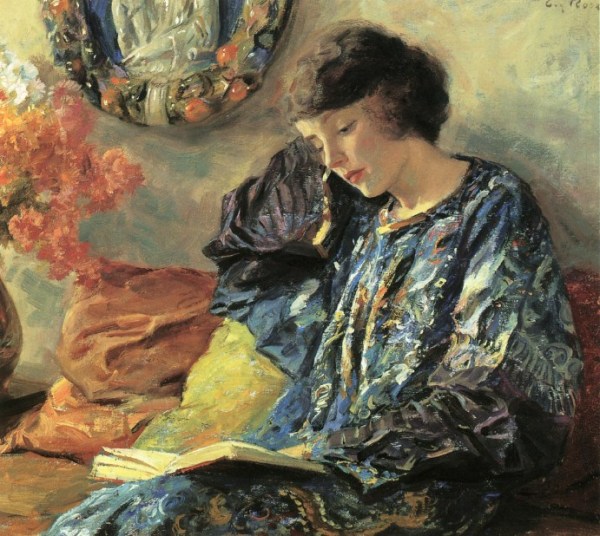
The popular saying, “Tell me who your friends are and I will tell you who you are” is attributed to a stunning variety of people – Assyrians, Mexicans, the Italian mafia bosses, and even to Vladimir Lenin. I guess the ongoing popularity of the saying proves that it is correct. Well, if so, why not try and apply the same yardstick to particular groups of people, for example, to those who tend to read a lot? Let us rephrase the proverb:
“Tell me what you read and I will tell you who you are.”

Now, think of it this way: you are an admirer of sweet, vanilla romance stories and you just met a new friend. At the very first date, he confesses to you that he never goes to bed without reading a horror book… What would your secret thoughts be like?
Okay, let us fantacize more. Suppose, you decided to read your friend’s favorite horror story — just to get to understand his taste in reading a little better — and somewhere in the middle of the book you begin to clearly realize that one of the book’s characters behaves, speaks, and even thinks exactly like your friend! Again: any secret thoughts?

Alright, let us go a little further. The horror book scares you — not only because it is an unusual piece of reading for you, but because it reveals your friend’s personality in a new, unexpected way. At the same time, the more you read, the more excited you are by the book, so you decide to read it to the end. A plausible explanation for this decision is already buzzing in your mind: first, you want to learn as much as possible from the book; second, you want to be well prepared for the next meeting with him…
And there it comes: the realization that, before you opened the book for the first time, this guy was only a friend, a nice person to be with, but now, when you learned so much about him from the book, he somehow means a lot more to you…
Well, this is the moment when I need to I put on my psychologist hat and ask for a pause, because you have just crossed your so-called point of no return: the reading has affected your opinion about your friend; now, your impression of him is a bit less candid than it was in the very beginning.
But why? What has happened?

Well, scientists call this ‘experience-taking’, where people actually “change their own behaviors and thoughts to match those of a fictional character that they can identify with.” Today, it is a scientifically proven fact that “while reading a book or story, people are prone to subconsciously adopt their behavior, thoughts, beliefs and internal responses to that of fictional characters as if they were their own.” But if so, then reading books is contagious, and reading the favorite books of our friends can lead to double effect: you’ll develop a biased opinion about your friend, plus the book might change your own behavior, too.
The tricky thing is that ‘experience-taking’ is an unconscious process, it can be very powerful because people don’t even realize it is happening to them. It begins naturally under the right circumstances. For the process to happen, you have to be able to take yourself out of the picture, and really lose yourself in the book in order to have this authentic experience of taking on a character’s identity. In other words, “the more you are reminded of your own personal identity, the less likely you’ll be able to take on a character’s identity,” scientists say.
So far so good. At least, there is a way to avoid being ‘sucked’ into the ‘experience-taking’: you simply need to remain completely conscious (a bit skeptical, for example, or simply to do your reading when surrounded with other people who won’t let you focus on reading completely), then the book will not be able to ‘cast its spell’ on you.

If you are an addicted reader since very young age, you will probably remember how you were ‘addicted’ to some book heroes and how they influenced you in childhood. Many parents today have to go through a worrying time of Harry-Potter-mania with their kids. Well, the influence of books is strong, and they don’t only ‘work’ in the immature minds of children. Researchers confirm that ‘experience-taking’ may lead every grown-up reader to temporary real world changes, as well.

Having studied all this information, I have been wondering: do authors of fiction realize the real power they have in their hands when they write?
It seems that modern people, especially the new generation, are becoming more vulnerable to the effect of books. The crazy rhythm of life, the informational technologies, and the unbearable amount of information which continuously floods into our minds make us wish to hide away for a while, and the best asylum is a good book to read in the quietness of your room.
All in all, there is some charm in the contagious process of experience-taking, don’t you think? In the end, this is the reason why we read fiction: we need to be charmed by a hero (or heroine), we want to repeat their behavior, and if a book can help us learn about our real life friends by analyzing what habits they have picked up from a book, mm– why not? This is all individual. You like it? So be it.










philstanfield
/ February 1, 2018Hi Rina,
I remember reading years ago in one of Stendhal’s novels his analysis of the process of coming to love someone. I remember he reduced it to about four points or stages. A key aspect of that process (whether he decided it was key or I did in my reading, I’m not sure) is the experience of fantasising about that person and how this binds us to them. Phil
LikeLike
Rina Tim
/ February 1, 2018Hi Phil, thank you for reminding me of those works of Stendhal. He was one of a few foreign authors whose collections (translated into Russian) were available in book stores in the Soviet Union, so all my generation loved reading his books when we were teens. I don’t think we understood Stendhal’s novels, but we were thursty about every page with the word ‘love’ on it. I have a full collection od his works in my home library, so I’ll read it again now. 🙂 BTW, this is a digested description of Stendhal’s theory of love at BrainPickings.org: https://www.brainpickings.org/2012/11/29/stendhal-on-love-crystallization/
LikeLiked by 1 person
philstanfield
/ February 1, 2018Hi Rina, thanks for the interesting link. What struck me as most noteworthy in Stendhal’s analysis was that an essential stage of one’s deep, perhaps deepest commitment is developed away from the object of that commitment (as in, as you note, reading a book). What fuels this process relates to my own lifelong interest in idealism and its creative power more broadly – so well exemplified in the Russian Revolution.
LikeLike